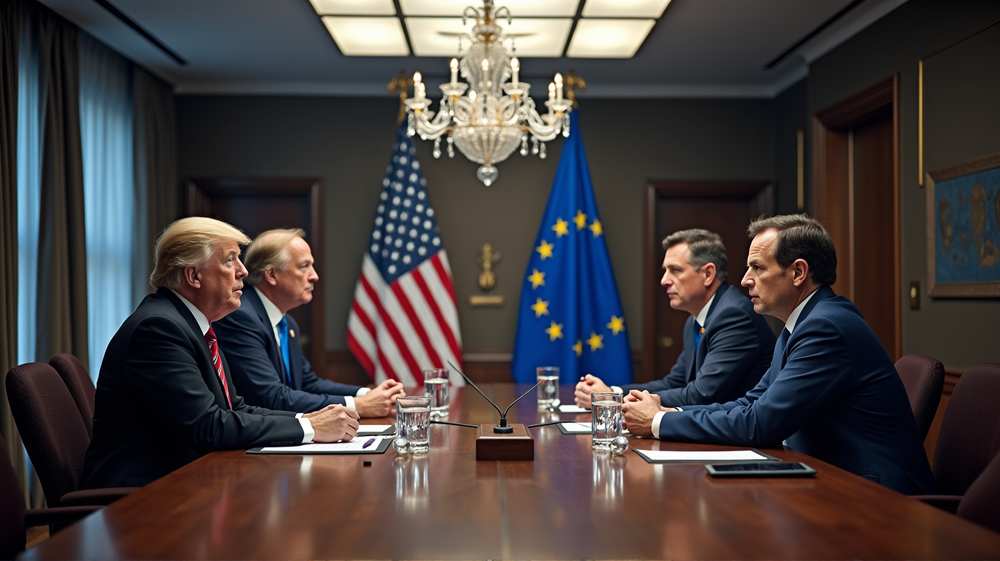In an intense push for trade negotiations, the US has emphatically urged Europe to reconsider its stringent rules for big tech companies, saying it could lead to easing of tariffs on European metals. Commerce Secretary Howard Lutnick highlighted the importance of this reconsideration as a prerequisite for alleviating the currently high tariffs on steel and aluminium exports from Europe.
Trade Talks Turn Tense
As trade representatives from the US and EU gather in Brussels, the future of their trade relationship teeters on the edge. The trade framework, negotiated in July, initially provided some respite with a lowered tariff rate of 15% on certain European exports. However, issues remain, particularly around tariffs on metals and the growing number of products subjected to added levies.
The Sticking Point: Digital Regulations
Digital regulations in Europe are a significant sticking point in these negotiations. The US has long criticized the digital services taxes and the Digital Markets Act for disproportionately targeting American tech giants. The US insists that concessions here are tied to any potential changes to the hefty 50% tariffs still applied to European metals.
Seeking Common Ground
US Trade Representative Jamieson Greer reinforced this stance, indicating that European measures towards American goods need to be reciprocated with reforms in their digital policies. Europe, however, stands firm, with European Trade Commissioner Maroš Šefčovič asserting that their digital rules are non-discriminatory and non-negotiable.
The Bigger Picture
Beyond the immediate trade implications, this negotiation has broader repercussions for the relationship between the US and EU and the global tech landscape. As American firms feel pressured by European regulations, there’s an underlying current of rivalry and competitiveness in tech supremacy.
What’s Next?
The outcome of these negotiations could significantly impact tariffs on a wide range of products, from metals to agriculture and beyond. The tech industry’s gaze is firmly set on these discussions as the potential for policy shifts could redefine market dynamics and competitive balance.
According to BBC, both parties are expected to continue dialogues, striving for a balanced resolution that addresses both trade disparities and digital regulations.
With so much at stake, the future of US-Europe trade hangs on this delicate balance, influencing global markets and tech industry giants alike.













